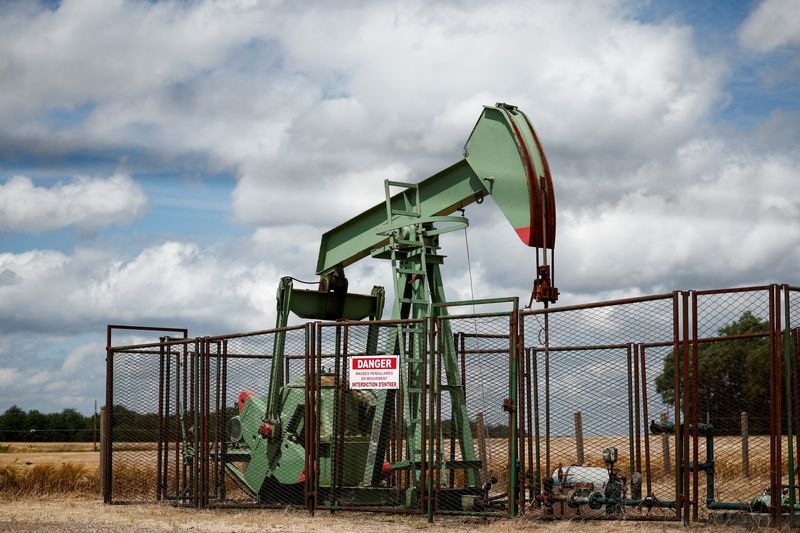Oil prices rose on Monday, remaining at their highest since mid-October as colder weather spurred buying while further support was provided by a weaker U.S. dollar and expectations of tighter sanctions on Iranian and Russian oil exports.
Brent crude futures gained 49 cents, or 0.6%, to $77 a barrel by 1319 GMT, their highest since Oct. 14.
U.S. West Texas Intermediate crude was up 49 cents, or 0.7%, at $74.45 for its highest since Oct. 11.
Oil had previously chalked up five sessions of gains, buoyed by hopes of rising demand after colder weather in the Northern Hemisphere and more fiscal stimulus to revitalise China's faltering economy.
Brent crude was supported by colder than normal weather in northwest Europe and the United States, a rally in natural gas prices and higher refining profit margins, said SEB analyst Bjarne Schieldrop.
A weaker dollar also boosted prices. A weaker U.S. currency makes dollar-priced commodities such as oil cheaper for buyers using other currencies.
The dollar fell 1% on Monday after the Washington Post reported that President-elect Donald Trump was considering tariffs that would be applied only to critical imports.
Investors are also awaiting economic news for more clues on energy consumption and the U.S. Federal Reserve's interest rate outlook. Minutes of the Fed's last meeting are due on Wednesday and the December payrolls report is scheduled for Friday.
Meanwhile, Saudi Aramco (TADAWUL:2222), the world's top oil exporter, has raised crude prices in February for buyers in Asia, the first increase in three months. A rise in these prices usually indicates firmer demand expectations.
On the supply front, stronger Western sanctions on Iranian and Russian oil shipments are a distinct possibility.
The Biden administration plans to impose more sanctions on Russia over its war on Ukraine, taking aim at its oil revenues with action against tankers carrying Russian crude, two sources with knowledge of the matter said on Sunday.
Goldman Sachs expects Iranian oil production and exports to fall by the second quarter as a result of expected policy changes and tighter sanctions from the administration of incoming U.S. President Donald Trump.
Output at the OPEC producer could drop by 300,000 barrels per day (bpd) to 3.25 million bpd by the second quarter, the bank said.












